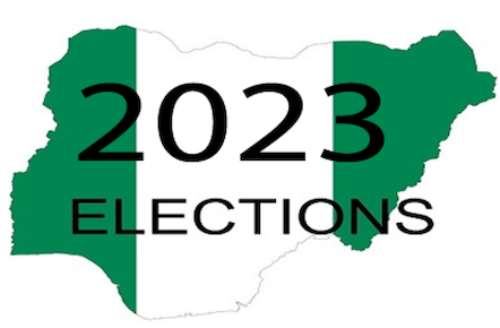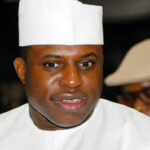
The plausible idea that the vast majority of voters when afforded the opportunity will make the right choice and decision in electing their representatives has been a debatable puzzle yet to be unravelled for nearly a century now. American political scientists, Anthony Downs, William Riker and Robert Dahl have been the three leading and frontline scholars who have studied that issue extensively. Downs in The Economy Theory of Democracy (1952), Riker in The Theory of Political Coalitions (1962) and Dahl’s Polyarchy; Participation and Opposition (1971) sort to emphasise how rational our democratic choices could be in a competitive sense. Therefore, the question arises, how do voters through voting build the best momentum for democratic governance? The crux of the matter is whether faced with the ballot, voters would make rational or irrational choices in voting in elections. The central argument in this discourse revolves around the role of the (ir)rational voters and their (il)liberal voting choices – responsible for Nigeria’s piling democratic deficits. As Stefan Linberg (2003) once asked, how do African and Nigerian voters prevent elections from feeding neo-feudalism and neo-patrimony, but rather counteract these ill-fated phenomena?
The debate on the theory of rational choice stemmed from the democratic philosophy of democracy being a system configured for public good. But democracy since the turnout of the 21st century has ushered in autocrats, despots, bigots, tribalists and demagogues whose deck of cards have not been too far from ruination and damnation of institutions of states and nations. In Nigeria, how do we erase the constituent elements of neo-feudalism and neo-patrimony in our electoral democracy? In most instances, the electorate and voters alike have been responsible for catapulting such anti-democratic figures to positions of authority. Our elections, very often, have turned out to be self-destruct in many ways. Therefore, are Nigerian voters not responsible for the catastrophic ruin that our elected government has now bequeathed to us since 2015?
How do we then use elections to respond to Thomas Sankara’s poser of “we must choose either champagne for a few or safe drinking water for all.” How then can we rescue Nigeria from the macabre dance of shame in governance and politics that now define our nation-state? In February 2023, we’ll line up to elect a new president. We have a choice to continue with the criminal prebendal state in place; where the few ruling elite run amok with national resources and wealth, consign the rest of the citizens to penury and lack, and designate the country as the poverty capital of the world, or embrace a novel pathway that somehow meets all the yearnings for change and accountable leadership. Unlike previous presidential races, Nigerian voters do not have two devils to choose from in the coming presidential election. Nor are voters caught in a deep blue sea on who to vote for as President. At least, in 2023 we have the clarity to guide our electoral choices.
Therefore, the democratic value of voters is not to elect the bad guys and a bad government. That role embedded in voters compelled voting in credible leaders who will not only work for the people and common good but will also defend the republic against all forms of attacks – including the elite conspiracy, looting, invasion, hunger, poverty, despair, insecurity and criminality.
Thus, it is pertinent to reflect on the role of the Nigerian voters and how to escape the plaque of what I termed electoral self-immolation which means the flagrant and deliberate pursuit of primordial sentiments in electing spoilt rotten candidates while rejecting the more mundane and democratically fitting candidates. Granted, Nigeria is governed by the insanity of nepotism and religious bigotry, haven’t we suffered enough to discard and trash monsters and embrace credibility and merit on the basis of who we are to vote for as president in 2023?
To what extent have the tribalists and bigots, state captors and members of the deep state helped to advance Nigeria in the last 62 years? This then brings us back to the recently held lecture on the Late Dr Olusola Saraki where one of Africa’s most celebrated intellectuals, Prof Patrice Lumumba, presented a prognosis of how African politicians, particularly the Nigerian elite, ruin their countries on the failure of shared power and the naked abuse of the majoritarian state ideology. In his speech, Lumumba cited how African leaders, particularly the Nigerian ones, “use those ethnic divides to reinforce centrifugal forces and threaten the very nation we want to serve.”
If we are sincere enough in answering the above question without guilt, there’s every possibility that the 2023 presidential election provides a template and pathway to retool Nigeria for the better. At the moment, Nigeria’s society is highly polarised and fragmented; the country’s global great-power status has diminished with sordid tales of a gloomy future. We now have every opportunity in the 2023 presidential poll as a guidepost for national redemption. We have every chance to rescue and save a bleeding nation. The geopolitical risks of repeating the mistakes of 2015 are huge and will be expansive. We now have a clear and succinct path and choice to pull Nigeria from the precipice.
- Paul Obi, a journalist and researcher, writes from Abuja




